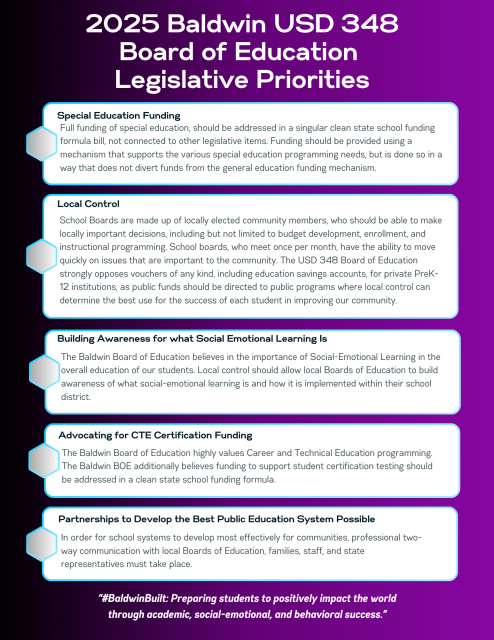During the November 18, 2024, Regular Board Meeting, the Baldwin Board of Education identified the following themes as their Legislative Priorities. At the December 16, 2024, Regular Board Meeting, the Baldwin BOE approved the following Legislative Priorities.

- Special Education Funding: Full funding of special education, should be addressed in a singular clean state school funding formula bill, not connected to other legislative items. Funding should be provided using a mechanism that supports the various special education programming needs, but is done so in a way that does not divert funds from the general education funding mechanism.
- Local Control: School Boards are made up of locally elected community members, who should be able to make locally important decisions, including but not limited to budget development, enrollment, and instructional programming. School boards, who meet once per month, have the ability to move quickly on issues that are important to the community. The USD 348 Board of Education strongly opposes vouchers of any kind, including education savings accounts, for private PreK-12 institutions, as public funds should be directed to public programs where local control can determine the best use for the success of each student in improving our community.
- Building Awareness for What Social-Emotional Learning Is: The Baldwin Board of Education believes in the importance of Social-Emotional Learning in the overall education of our students. Local control should allow local Boards of Education to build awareness of what social-emotional learning is and how it is implemented within their school district.
- Advocating for CTE Certification Funding: The Baldwin Board of Education highly values Career and Technical Education programming. The Baldwin BOE additionally believes funding to support student certification testing should be addressed in a clean state school funding formula.
- Partnerships to Develop the Best Public Education System Possible: In order for school systems to develop most effectively for communities, professional two-way communication with local Boards of Education, families, staff, and state representatives must take place.
